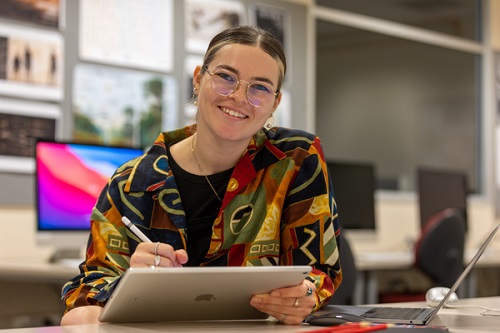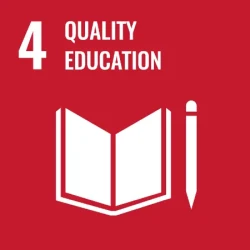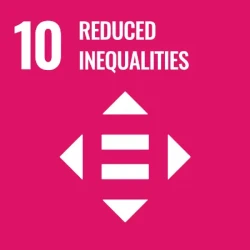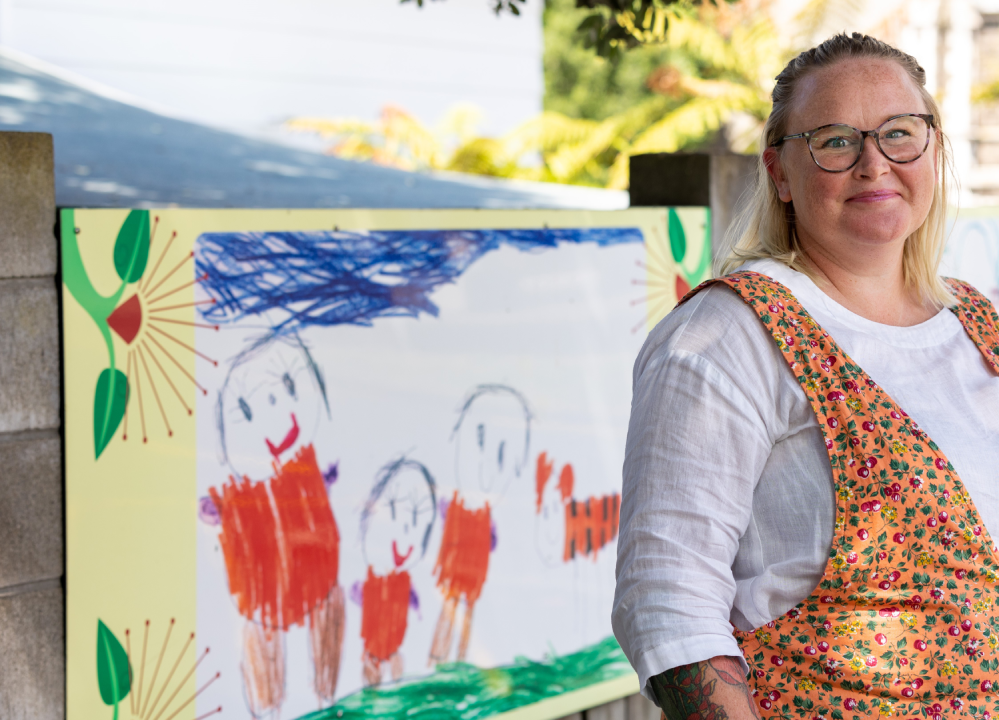A University of Waikato PhD student is designing picture books for children with Attention Deficit Hyperactivity Disorder (ADHD) to enhance their reading engagement.

Diagnosed at 24 with ADHD and Autism, Hazel is researching how different picture book designs can improve reading and engagement among children with ADHD.
Hazel Burroughs, who was diagnosed at age 24 with ADHD and Autism over a year ago, says these conditions make life tricky because the right kind of support is difficult to access.
“I struggled with literacy throughout school and I’ve only recently been able to unpack and acknowledge how Autism and ADHD have shaped my life,” Hazel says.
One in 20 New Zealanders have ADHD and studies suggest that children with ADHD struggle with literacy because attention issues make it harder to concentrate on the text.
A report by the Education Review Office on Wednesday found disabled learners were actively disadvantaged in early childhood services and schools. It called for an independent complaints body and investigation and action when schools fail to meet the needs of children with disabilities.
Hazel says previous research suggests children with ADHD require more specialised picture book design compared to neurotypical children. However, research hasn’t yet uncovered what the optimal design recommendations are.
“From what we suspect, children with ADHD require much more interactive picture books with vibrant colours and less text on each page.”
Hazel researches how different typography and design aspects can improve reading engagement and stimulation among children with ADHD to better their overall reading ability.
“Reading engagement is directly linked to reading comprehension and achievement, so if a person isn’t engaged in reading, it hinders their overall reading achievement.
“Education can be fun, and it should be.”
Hazel says she isn’t researching the topic for herself, but for the kids who go undiagnosed and have no clue why reading is so hard.
“I always knew I wanted to use my skills to help people, and I am passionate about giving kids like me the best chance right from the get-go.
“I am of the firm opinion that being autistic and having ADHD does not hinder your potential whatsoever. That isn’t to say it doesn’t make life harder, because it does due to our society; I’m just extremely stubborn and refuse to let ableist ideology stand in my way.”
Hazel grew up in Hamilton and attended Hillcrest High School where she played a high level of competitive hockey.
She completed her Bachelor and Master of Design at Waikato and has just started her PhD in Computer Science.
“I chose Waikato as the design staff here is fantastic, every one of them is extremely passionate about design innovation, which is very inspiring. Also, the facilities and design subjects available are unique, with so many diverse avenues of design to explore.
“The University as a whole offers so many great opportunities, there are so many avenues into different careers here. I’ve had the privilege of being able to participate in research even before my master’s degree.”
Hazel’s dream is to create books for neurologically diverse people while pursuing research as a lifelong career.
“Being able to put my findings into practice, and hopefully see them make a positive impact is the ultimate goal.”
This November the University's Associate Professor Nicola Daly and Dr Janette Kelly-Ware, leaders of the Waikato Picturebook Research Unit in Te Kura Toi Tangata are hosting the Waikato Picturebook Research Unit Seminar, which is focused on Picturebook Perspectives on Disability and Inclusion.
Attendees will hear from librarians, publishers, and children's literature researchers about disability and inclusion in picture books from Aotearoa and around the world.
Associate Professor Patsie Frawley, who heads the Masters of Disability and Inclusion studies at Waikato, is the keynote speaker and will be joined by the likes of author Dawn McMillan and PhD student, Devika Rathore.
- To read more about design at the University of Waikato, see the Bachelor of Design qualification.





